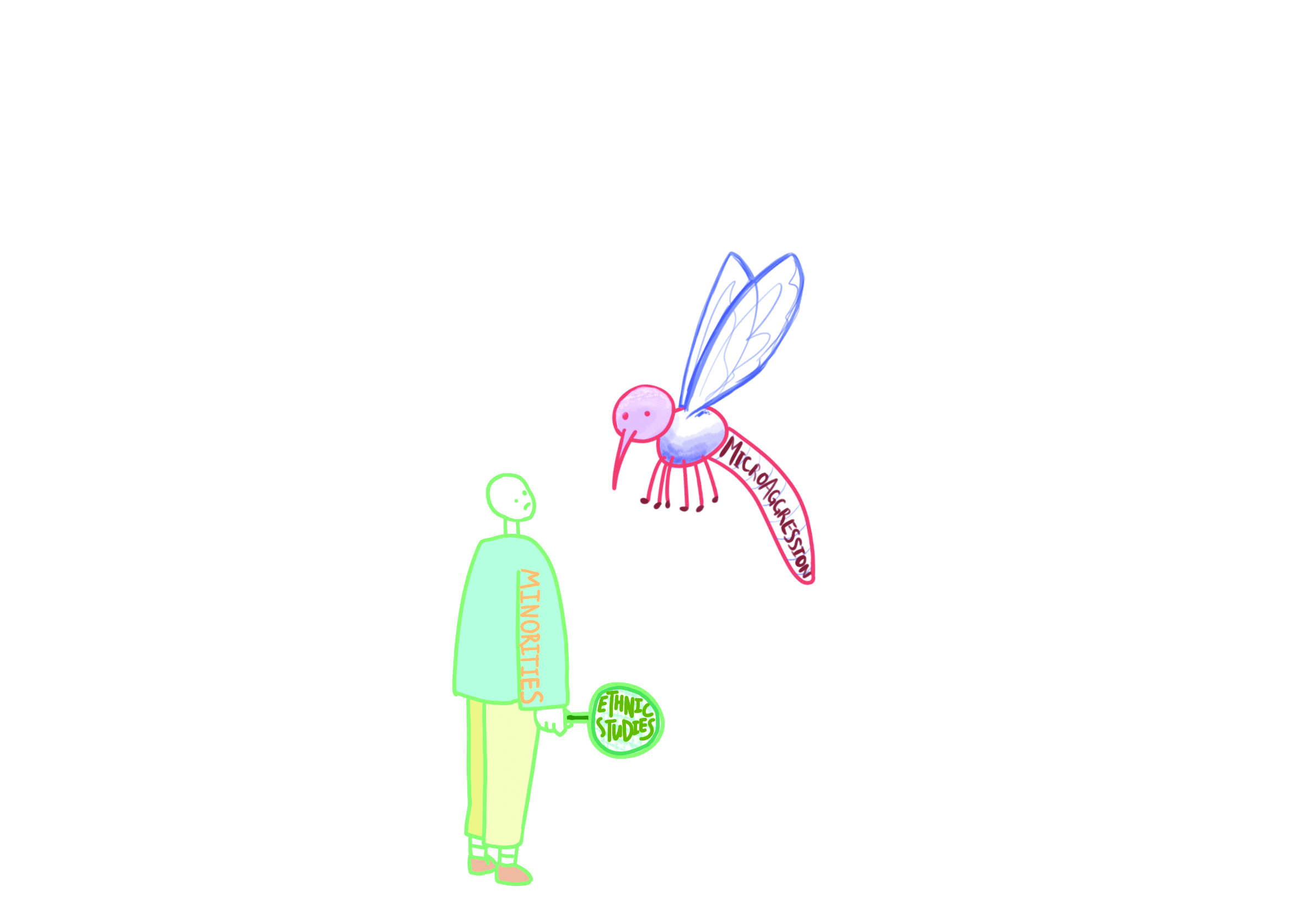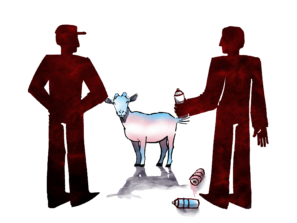
“You’re Asian — All you do is study.”
Echoing in the halls of my middle school and in my mind throughout high school, this label of a studious, quiet Asian quickly became people’s first and sometimes permanent impression of me. At one point, the repeated label caused me to internalize this single story and begin to define myself by this stereotype. However, determined for people to look beyond this stereotype, I strived to prove to myself beyond my studies by investing my time in activities that I resonated with to become who I am today.
Despite this, it was still difficult for me to explain why this single story was detrimental to my identity until we covered the topic of microaggressions in my Ethnic Studies class. Taught through an analogy of mosquito bites, the harm of microaggressions start from a mild irritation to an overwhelming, repeated annoyance hidden in the underlying messages of everyday interactions. Similar to how certain people are more prone to mosquito bites, minorities are more prone to microaggressions, hearing the same limiting stereotype forced upon them by members of our communities.
Due to my repeated exposure to this microaggression, I had become increasingly frustrated when this stereotype of a studious, “boring” Asian was perpetuated in the media or joked around among my classmates. In my class of Ethnic Studies, it was a pleasant surprise when my class, full of opinionated and outspoken minds, unanimously acknowledged the harm microaggressions cause. The agreement proved to be a hopeful step of awareness and improvement, especially considering that in the beginning of the year students in my class appeared too rigid in their beliefs to even acknowledge other perspectives.
Shortly after this agreement, our class erupted into a heated debate of apologies between innocent intentions and words’ harmful impact. Some argued that apologies are unnecessary because the apology itself would signify wrongdoing despite pure intentions. Others were convinced that intentions do not matter if the person was hurt over those words, which deserve an apology to the harm caused. While I sided with the latter, this conversation opened my eyes to the fact that despite our community’s liberal reputation, there are people in our community who do not hold liberal perspectives and that within liberal beliefs there is a spectrum of positions.
“I signed up for this class to further my interest in law and my passion for equality into studies of ethnic groups”
As an aspiring lawyer and activist, I signed up for this class to further my interest in law and my passion for equality into the studies of ethnic groups. However, this class has taught me more than I expected.
This conversation, along with the many other debates we have in class, was essential to understanding others’ perspectives on personal issues. Other classes do not have this same insightful experience since they do not address issues that affect us on a deep, personal and everyday level. Due to the everyday relevance of the issues discussed in class — from racism to “Stand Your Ground” laws — I have participated more in this class than in any other class in my entire educational career. I express my voice to peers who I know will not only respect my opinions, but will also respond with their own. Their voices aren’t formulaic or forced, like textbook readings and Socratic Seminars; rather they directly challenge my beliefs and offer new ways to evaluate my own perspectives.
Ethnic Studies is the only class where classroom discussions come up at the dinner table; it’s the only class where I participate on a daily basis and the only class where I really get to learn more about the backgrounds and perspectives of my peers. In an academic setting, these conversations allow us to express our opinions in a respectful manner, a refreshing break from the aggression and polarization of our current political climate. Through the honest conversations unique to this class, we address ugly truths in our communities and brainstorm solutions for a brighter future. Even if some conversations end without closure, simply having the conversation about uncomfortable and often unspoken truths teaches me lessons about awareness and compromise.





